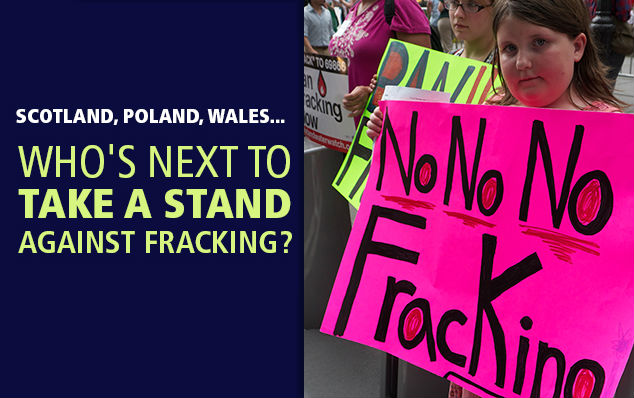
Those of us following the debate on fracking in Europe are probably aware that France and Bulgaria already banned fracking, in 2011 and 2012 respectively. Big Oil & Gas has challenged these bans, even all the way up to the Constitutional Court in France. But these bans on fracking are still standing. This is a testament to how strong public opinion rejects fracking for shale gas. So far, no other Member State has moved to also ban fracking in their national law.
However, that does not necessarily mean that shale gas is advancing elsewhere. Quite the contrary: Over the few months, a slew of new moratoriums on fracking has come in effect. It started in the summer of 2014, when the regional Flemish government decided that – in the absence of some minimal rules and administrative capacity on fracking – there would be a moratorium for the exploration and production of fossil fuels that require fracking. In December 2014, the Dutch Parliament also voted in favour of another extension of an earlier moratorium, at least until the end of the current government of Prime Minister Rutte. This means that there may be no fracking in the Netherlands until mid-2017.
Around the same time, the state of New York moved to turn its moratorium into a full ban on fracking, citing the many health concerns as the main reason for its decision. The news resonated across the Atlantic, and especially in the UK. The Scottish government announced an indefinite moratorium on fracking at the end of January. One week later, the Welsh National Assembly adopted a resolution, calling on the Welsh government “to do everything within its power to prevent fracking from taking place in Wales until it is proven to be safe in both an environmental and public health context.” At that point, it became clear that even the most “all out for shale” promoters would need to cave to the public pressure to at least accept that some areas would be off limits for the fracking industry (e.g. in national parks, although fracking under them is apparently ok). Meanwhile, a planning permit to drill and frack a well in Lancashire was rejected, due to concerns about noise and traffic. This will – yet again – delay the process by several weeks, possibly months. The hopes for a quick shale gas revolution are fading fast in the UK. Our prediction: Shale gas in the UK will go the same way as shale gas in Poland. Starting with hype, then the first disappointments and protests, a period of confusion and finally an acknowledgement that fracking is not a solution, but rather part of the problem. The nail in the coffin for the Polish shale gas hopes came when Chevron announced that Polish shale gas could “no longer compete favorably with other opportunities in Chevron’s global portfolio.” Last weekend, Chevron announced that it is also relinquishing their concession interests in Romania. This means that Chevron is quitting European shale gas exploration altogether. Chevron’s decisions are a clear indication that the drop in global oil prices will be yet another obstacle for the fledgling shale gas corporations in Europe.
Does that mean that we put a stop to the plans of Big Oil & Gas to frack Europe?
Of course not! Some will stop at nothing to accommodate this industry.
Mid-February 2015, the German government just reneged on its earlier promise of a 7-year moratorium on shale gas extraction, with the exception of some research-based sample drillings. In Denmark, shale gas exploration by Total is moving slowly but steadily ahead. And 2015 will be a decisive year for fracking in the UK. We cannot rest on our laurels until there is a complete ban on fracking in each and every country in Europe and beyond!


